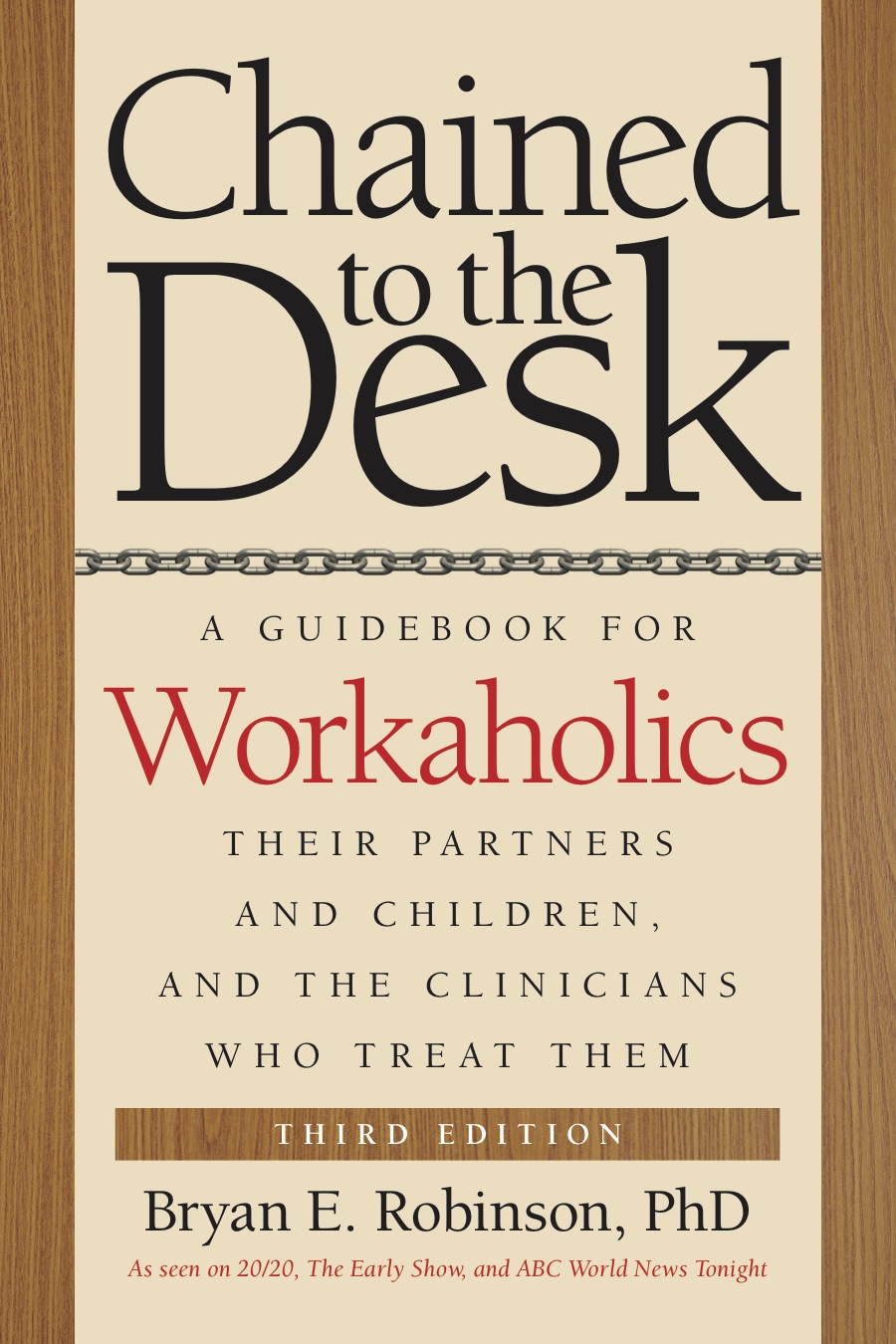My research suggests that workaholism has devastating systemic effects on other family members that can be as severe as — or even more severe than — the familial effects of alcoholism. But there is one major difference between the spouses and children of alcoholics and those who live with workaholics: Clinicians give the partners and children of alcoholics understanding, professional help, and referrals to self- help programs like Al-Anon. When the partners and children of workaholics complain, they get blank looks. Therapists — some of whom are workaholics themselves — often suggest that the partner simply accept and adapt to the workaholic’s schedule or tell the spouse not to be a “pop psychologist.”
Asked what a spouse can do to change a workaholic, one management consultant gave some less than helpful advice in a popular magazine interview: “Family members should make every effort to be exposed to the workaholic’s work world. They should meet for lunch if possible. Even a small child can be taken to the office, shop or lab on a weekend. To make time together enjoy- able, they must simplify household chores — pay bills and shop by phone, for example, and buy a microwave oven. Most important, they should anticipate spending a lot of time on their own. As one stockbroker told me, ‘I may be a lousy father, but when Merrill Lynch needs me, I’m here.’
The message here is to center your life around the workaholic and his or her work schedule, join in the addiction whenever possible, and settle for being alone a lot. In other words, bite the bullet and enable the problem to continue.
Although our culture so often admires this sort of “dedication” to work, it’s not surprising that wives and husbands often bring their workaholic partners into my office, insisting that the partners invest in the marriage. Spouses of workaholics say they feel like widowed partners and solo parents. With little support from the workplace, the mental health system, or their families, many are self-doubting and depressed. “There are times when I feel that I would actually be relieved if my husband were dead,” said Dora, married to a driven attorney. “He doesn’t hit me, he doesn’t drink, and he doesn’t use drugs. There are a lot of things he doesn’t do — the most important being that he doesn’t do anything with me or our three kids.” When Dora asked him to spend more time with the family, he called her an ingrate and said he was only working day and night for her, the kids, and their future.
Work addiction is a family disease, one that affects you and other members of your family in a devastating way. Thinking of the family unit as a system can help you understand the disease concept. Suppose I wanted to know how the cardiovascular system works. I might go to a medical lab, locate a heart and the attached blood vessels, and then carefully dissect and study them. I would learn something about the basic structure of the cardiovascular system, such as that the heart has four chambers and a number of valves. But I would still not know how these chambers and valves work, because the heart would not be functioning. Only by studying the cardiovascular system while it is functioning in a living person could I see how the chambers and valves pump blood through the body. And I cannot know what happens to the heart when a person is running, for example, without seeing the cardiovascular system in relationship to the whole body system. This holistic approach teaches me that while the person is running, the muscles of the body require more oxygen than they do at rest and the heart beats faster to supply that oxygen. In other words, the total body system is affected by the running and must change to adjust to it.
The same is true of the workaholic family. It’s difficult to fully understand what happens to you as a family member without understanding the inter- workings of your total family system. When you look at your family as a whole, you’ll see that each member is part of a functioning system, with each person interdependent on the others. As your family works together to run smoothly, change in one part of the family system results in changes in the other parts. Your family system will always try to keep itself balanced, organizing around problems and thus often causing them to continue. Your workaholic fam- ily automatically alters how it functions to accommodate the workaholic’s extreme work patterns. Out-of-control working throws your whole family off kilter, causing the other members to shift the way they function in order to keep themselves in stasis and maintain a closed system.

Follow us here and subscribe here for all the latest news on how you can keep Thriving.
Stay up to date or catch-up on all our podcasts with Arianna Huffington here.


